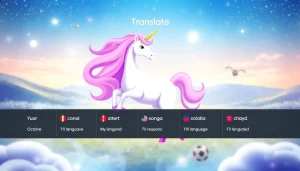Navigating the Emotional Journey of Relationship Breakup: Insights and Strategies
Understanding the Pain of a Relationship Breakup
Breaking up with someone can feel like a personal earthquake, shaking the very foundations of your emotional well-being. Whether the relationship lasted a few months or several years, the ripples of a relationship breakup can be profound, leaving you unsure of how to move forward. Understanding the intricacies of this emotional turmoil is the first step to healing.
The Emotional Impact of Breakups
The emotional fallout from a breakup can vary greatly from person to person, but common feelings include sadness, anger, fear, and confusion. According to psychological research, these feelings arise due to the loss of a bond that may have felt integral to your identity. Many individuals experience what can be characterized as grief, similar to the experiences faced when losing a loved one. This grief can manifest in several ways, including:
- Sadness: Constant feelings of longing or nostalgia can invade your daily life.
- Anger: You may find yourself angry at your ex, at yourself, or at the situation, which can complicate your healing process.
- Fear: Anxiety about the future can arise, especially regarding loneliness or starting anew.
- Confusion: Mixed emotions about the relationship and its end can complicate your ability to move on.
Recognizing the Stages of Grief
Understanding the stages of grief can help contextualize what you’re feeling after a breakup. Elisabeth Kübler-Ross originally identified the five stages of grief, which can also apply to relationship loss:
- Denial: Shock and disbelief that the relationship has ended.
- Anger: Frustration and resentment towards oneself or the ex-partner.
- Bargaining: Attempting to negotiate a way to reverse the breakup.
- Depression: Profound sadness and despair over the loss.
- Acceptance: Coming to terms with the breakup and beginning to move on.
These stages are not linear; individuals may bounce between stages or experience them in a different order. Recognizing where you are in this process is important for framing your healing journey.
Common Misconceptions About Breakups
Breakups, despite their prevalence, are often surrounded by myths that contribute to additional emotional pain. Common misconceptions include:
- You should have moved on by now: Healing is a personal journey and takes time. Everyone’s timeline is different.
- It was your fault: Relationship dynamics are complicated; blame can often be misplaced or oversimplified.
- You’ll never find love again: This thought process can trap you in the past. Many individuals go on to have fulfilling relationships after a breakup.
Healing After a Relationship Breakup
Once you acknowledge your feelings and begin to understand the emotional impact of a breakup, the next step is healing. This phase isn’t about forgetting but about refocusing your energy toward self-care and recovery.
Strategies for Emotional Recovery
There are several proven strategies for facilitating emotional recovery after a breakup:
- Express Your Emotions: Allowing yourself to feel and express your emotions, whether through journaling, talking with friends, or seeking therapy, is crucial.
- Avoid Contact: Establishing boundaries can provide the space needed to heal. Avoiding contact with your ex can help minimize emotional turmoil.
- Engage in Activities: Filling your time with hobbies, interests, and activities can provide a necessary distraction and help boost your mood.
- Seek Professional Help: If feelings become overwhelming, speaking with a mental health professional can provide support and guidance.
Importance of Self-Care and Support
Self-care is not merely a trend; it’s about proactively engaging in practices that nurture your body and mind. Some effective self-care strategies include:
- Exercise: Physical activity can release endorphins, boosting your mood and overall well-being.
- Healthy Eating: Nourishing your body with healthy foods will help improve your emotional resilience.
- Social Support: Surrounding yourself with supportive friends and family can provide comfort and perspective during difficult times.
Letting Go: Closure and Moving On
Closure is an essential part of moving on. Understanding that closure may not always come from the other person but can be fostered within yourself is crucial. Strategies for gaining closure include:
- Writing a Goodbye Letter: Writing a letter to your former partner that you don’t send can help articulate feelings you might still be holding on to.
- Reflecting on the Relationship: Acknowledging what you learned and how you’ve grown from the experience is essential.
- Visualizing Moving Forward: Allow yourself to envision a future without your ex, filled with new possibilities and relationships.
Communication During a Relationship Breakup
Effective communication is key in navigating the often-tumultuous experience of breaking up. Doing so respectfully can pave the way toward healthier emotional states.
How to Break Up Respectfully
When ending a relationship, it’s important to approach the conversation with care. Tips for breaking up respectfully include:
- Choose the Right Setting: Have the conversation in a private, neutral space where both parties can speak freely.
- Be Honest but Kind: Transparency about your feelings is important, but avoid being overly harsh or critical.
- Listen: Allow your partner the opportunity to express their feelings and thoughts during the breakup discussion.
What to Say When Ending a Relationship
Choosing the right words during a breakup can be challenging. Here are some examples of phrases that can help convey your message sensitively:
- “I think we both deserve to be in a relationship that makes us truly happy.”
- “I’ve been feeling that we are on different paths, and I believe it’s best for us both if we part ways.”
- “This has been a difficult decision, but I feel it’s best for both of us to move on.”
Navigating Difficult Conversations
Difficult conversations don’t end once the breakup occurs. It’s essential to continue healthy communication even after a relationship has ended. Doing so can help both parties process their feelings and gain closure. Some strategies include:
- Keep Interactions Brief: Limiting conversations to essential topics can help reduce emotional triggers.
- Stay Calm: Allow emotions to settle before engaging in conversations to prevent misunderstandings.
- Use “I” Statements: Focus on expressing how you feel rather than pointing fingers, to avoid escalating conflicts.
The Role of Time in Healing After a Relationship Breakup
Time is often cited as one of the greatest healers. However, it’s important to understand that healing is not a one-size-fits-all process.
Understanding Healing is Not Linear
Many people mistakenly believe that healing occurs in a straightforward trajectory. However, in reality, it’s common to take two steps forward and one step back. Emotional lessons can be cyclical, and returning to certain feelings does not mean you haven’t made progress. Mindfully acknowledging this can help relieve some pressure during the healing process.
Setting Realistic Expectations for Recovery
Healing from a breakup is often more prolonged than anticipated, and expecting immediate results can lead to frustration. Set realistic and achievable goals for yourself, such as engaging in one new activity per week or reaching out to friends twice a week for social support. Progress can be measured in small accomplishments.
Benefits of Patience in the Healing Process
Patience is an invaluable tool during healing. By allowing your feelings to settle, you create space for reflection and personal growth. Benefits of practicing patience include:
- Greater Emotional Clarity: Over time, you may gain a clearer understanding of your feelings and needs.
- Stronger Resilience: Enduring the pain strengthens emotional resilience, helping you face future challenges.
- Increased Self-Discovery: The time spent alone fosters an opportunity for personal reflection and growth.
Moving Forward After a Relationship Breakup
Ultimately, the goal after a breakup is to move forward, embracing the future with optimism and possibility. This chapter’s end can signify a new beginning.
Rebuilding Your Life and Identity
Post-breakup, you may find it necessary to reconnect with your sense of self. Steps to rebuild your life and identity include:
- Self-Reflection: Take the time to understand who you are outside of the relationship and what aspects of your identity need enriching.
- Set New Goals: Consider setting personal and professional goals that excite you and give a sense of purpose.
- Explore New Interests: Trying new activities or hobbies can rekindle a sense of freedom and discovery.
The Importance of New Connections
While healing from a breakup, building new connections can be advantageous. Engaging socially can foster joy and rejuvenate your outlook. Strategies to cultivate new relationships include:
- Join Clubs or Groups: Participate in organizations or groups aligned with your interests to meet like-minded individuals.
- Reconnect with Old Friends: Reach out to friends you may not have seen in a while, deepening those existing relationships.
- Volunteer: Engaging in volunteer work can help forge connections while allowing you to give back to the community.
Embracing Personal Growth After Breakup
In the aftermath of a breakup, personal growth can be one of the most rewarding outcomes. Consider the following steps towards personal growth:
- Honest Self-Assessment: Take stock of your emotional and mental landscape. Recognize areas for personal improvement.
- Seek Learning Opportunities: Consider expanding your knowledge through courses, workshops, or reading.
- Practice Gratitude: Focus on what you are thankful for, which can shift your mindset toward positivity and attraction.














Post Comment